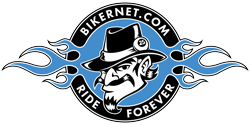Frankie 1964: Life and Times of Bandit
An Outlaw Rider’s Story by Keith “Bandit” Ball illustrated by Wayfarer Whether he knew it or not he reveled in three aims, creativity through motorcycles, freedom through riding and the touch of a woman. He quickly discovered insincerity, power, control and evil in the service, but Frankie held true to his belief in fairness and […]
Frankie 1964: Life and Times of Bandit Read More »
